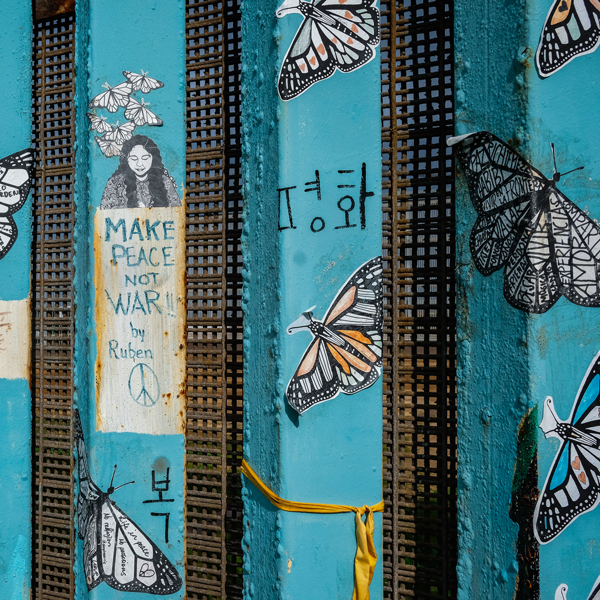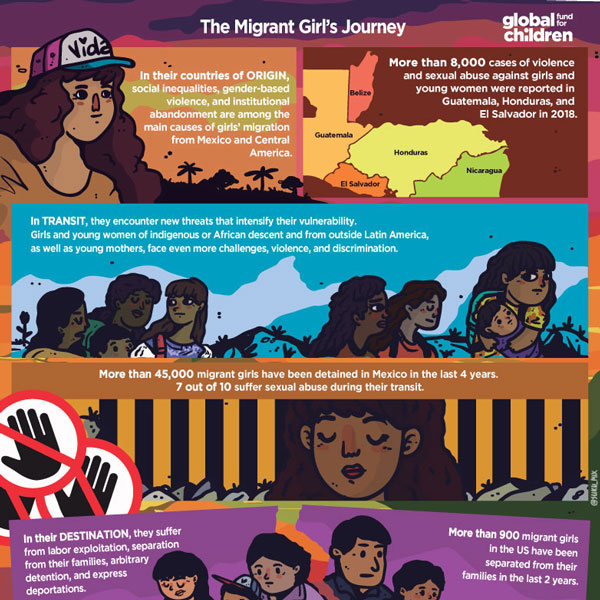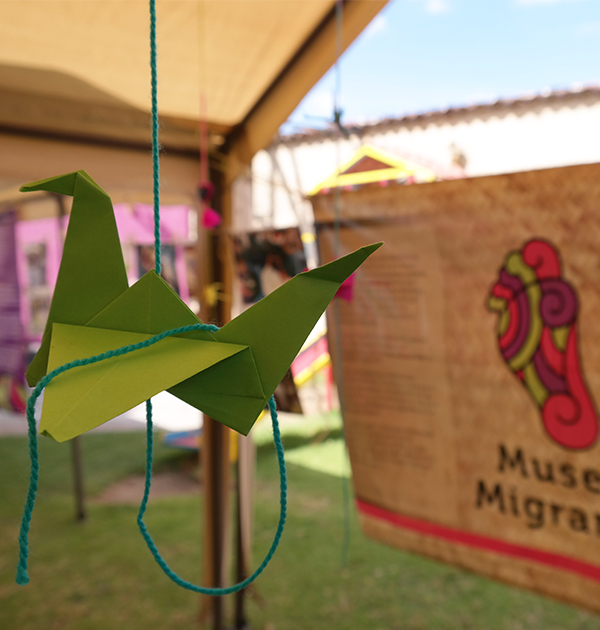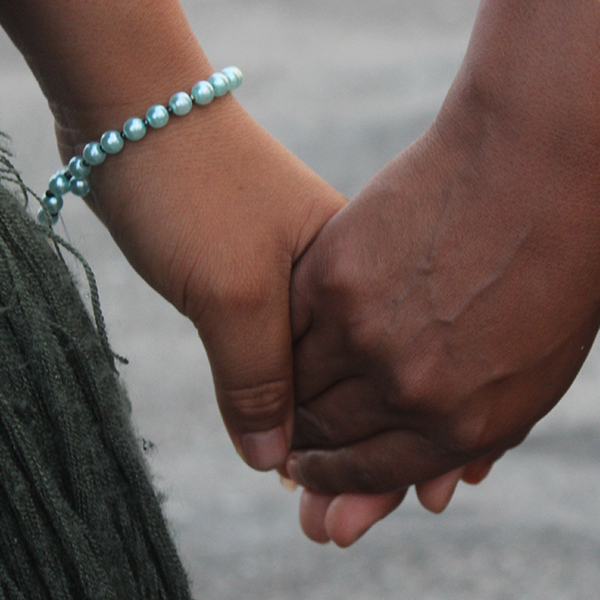This blog is also available in Spanish.
The Migrant Museum, which was started by Voces Mesoamericanas Acción con Pueblos Migrantes in Mexico, encourages children and young people to express their dreams, hopes, and fears through art.
Voces Mesoamericanas Acción con Pueblos Migrantes is a Global Fund for Children partner located in San Cristóbal de las Casas, Chiapas, Mexico. Since 2009, Voces Mesoamericanas has provided support to migrant Indigenous communities of southern Mexico so they can defend their rights, strengthen their collective identity, and build Lekil Kuxlejal: a happy life with dignity for everyone, no matter where they live.
The organization has determined that structural racism, violence, and marginalization have forced Indigenous people to flee their territories in order to survive.
In many cases, migration is not a decision. It is an act of desperation. A wound that produces uprooting and loss of identity.
However, Indigenous people resist every day, working together to build transnational communities of support and solidarity, and teaching us that another world, more humane and diverse, is possible.
In their journey, they claim their right to be and to belong. To fight for a better life for themselves and their families. To build bridges and weave collective stories across borders.
Indigenous children and youth are leading these efforts to create, connect, and resist. Every day, they challenge the hegemonic narratives that represent them as mere “victims” condemned to lose their identity in order to adapt and survive. Every day, they create and re-create a living, collective, and demanding memory, claiming their role as political actors with autonomy and agency.
Thanks to the inspiration and contributions of hundreds of Indigenous migrant children and young people, Voces Mesoamericanas inaugurated the Migrant Museum (MuMi) in 2015. The MuMi is an itinerant artistic project based on artivism, a dynamic practice combining the creative power of the arts to connect us, allow us to express ourselves, and move us emotionally with the strategic planning of activism to bring about social change.
The MuMi has three main objectives:
- Challenge the elitist vision of art as a “technique” managed by experts that is only admired from a distance, and instead understand it as a participatory, dynamic, and ongoing social process that promotes community wellbeing.
- Encourage the leadership of children and young people, supporting them to build new ways to creatively and accessibly express their dreams, hopes, and fears. Remind them that they have the right and the power to tell their own story.
- Promote connections and build counternarratives that contribute to a collective memory in which migration is seen as an opportunity to enrich life, honor diversity, and multiply our senses of belonging. In this way, the leadership of migrant children and youth to promote the wellbeing of their original and current communities is honored and encouraged.
The MuMi is always unfinished. Always in construction. A living memory.
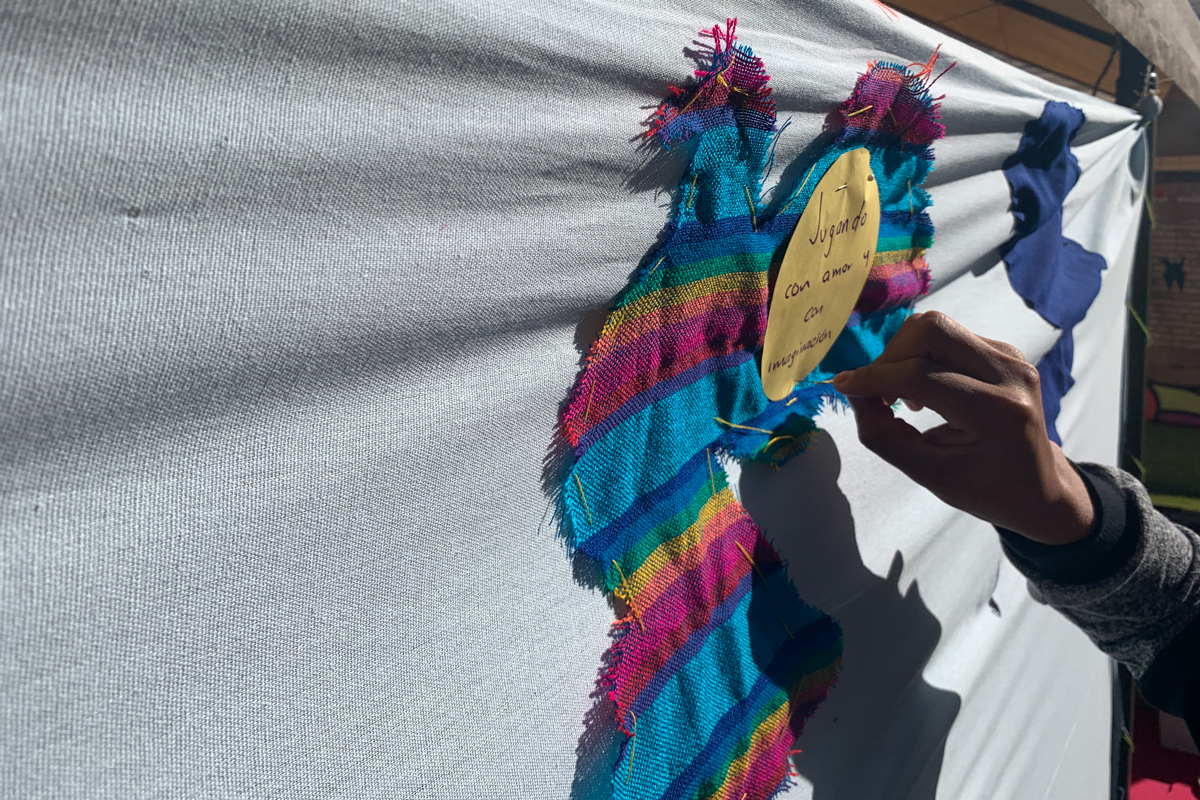
It has a basic structure, organized in four sections:
We Are Here focuses on migrants’ home communities, to raise awareness about the situation in their communities of origin and to reflect on the causes of migration.
We Are on the Road focuses on the migration itself, to share the challenges and violence along the migratory journey.
We Are There focuses on destination communities, to reflect on the contributions of migrants and to highlight transnational efforts to support migrant children and youth.
We Are Back focuses on migrants’ return, to make the experience of return visible.
The MuMi contains photographs, videos, drawings, textiles, songs, and plays. These creations of migrant Indigenous children and youth are packed in a suitcase and carried from community to community, where they are displayed to generate dialogue, promote collective and intergenerational reflections, and encourage more people to share their own experiences.
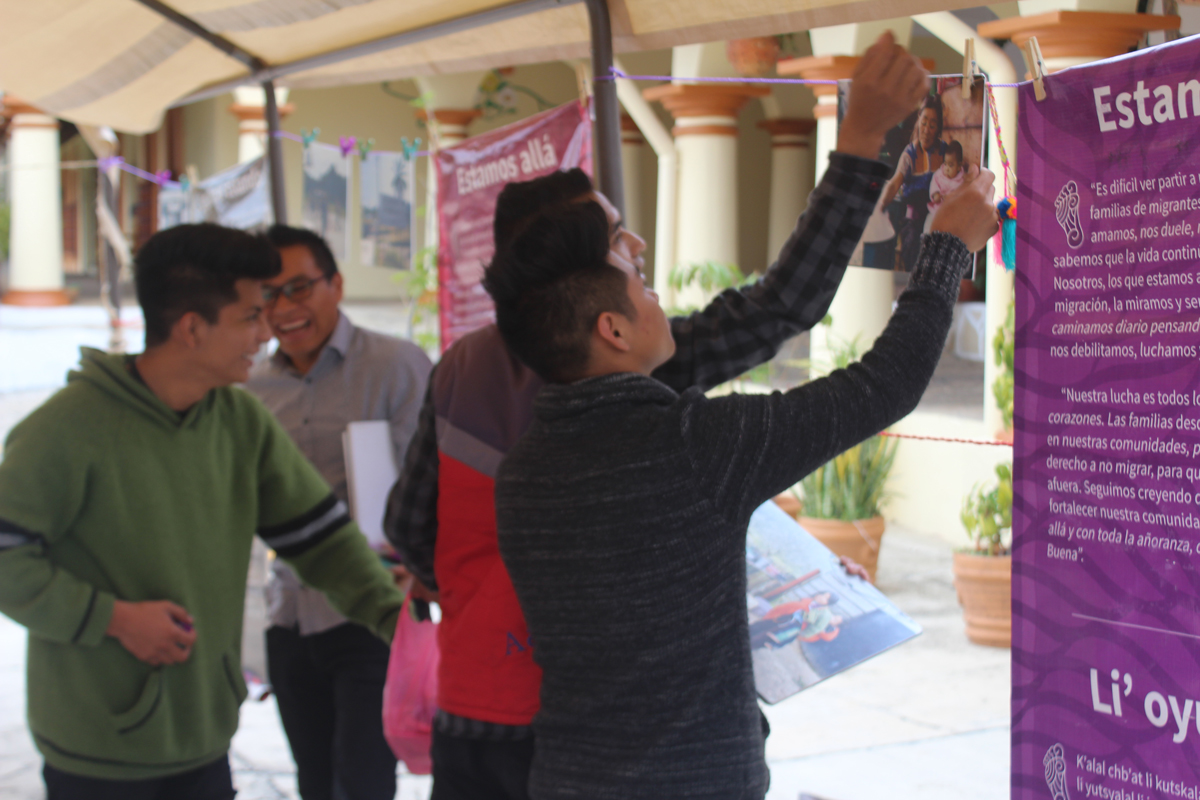
After presenting what has already been done in other places, the creative part follows. Now viewers become artists.
So … now that you have seen and felt all this, tell me, show me:
And you? How do you feel? What happens in your community? Why do people leave? What are your dreams?
It is also an interactive space where everything is touched, moved, changed, questioned. We are all artists and participants of the MuMi. We all have a story to tell.
In the end, the new pieces are presented and added to the museum. And proposals for social and policy-related change are also collected as part of this collaborative process.
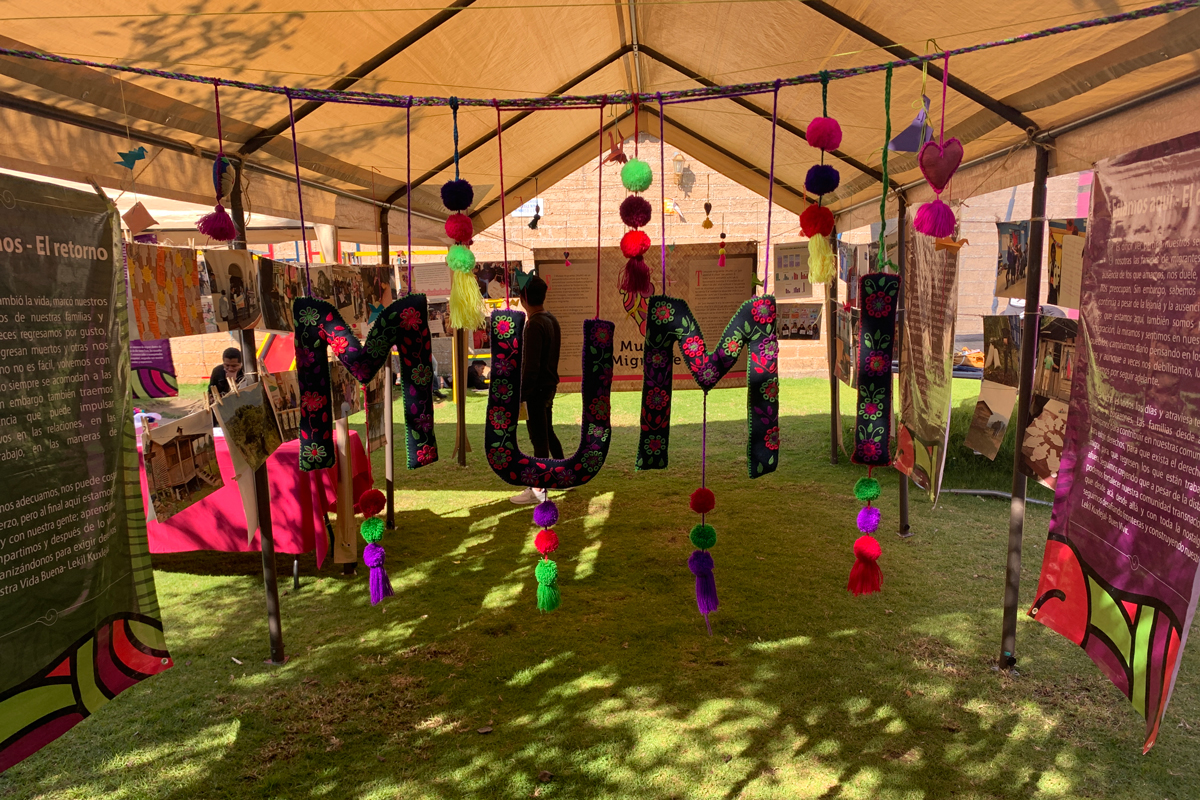
The MuMi then becomes a space for exchange, recognition, and healing where migrants can share their pain and identify strategies for change that contribute to the wellbeing of their families and communities. In the words of the Voces Mesoamericanas team:
The MuMi is roots, faces, paths that tell a little bit of history, accompanied by colors and embroidery that characterize the Indigenous peoples of this region, and some interactive strategies that we have built so that people can play and reflect on the stories they have heard and share theirs. The MuMi is a loving space – a stage that is nourished by the creative and artistic expressions of migrant children and young people for critical reflection, organization, and demand for rights.
In its six years of existence, MuMi has walked tirelessly: Tijuana, Brazil, Tapachula, England, Mexico City. MuMi’s footprints are everywhere.
With each step, the museum reminds us that children and youth are already changing the world. We just have to listen to them. Learn from them. Create with them. And, together, claim our right to imagine and build a more equitable world for all.
Voces Mesoamericanas promotes the voices of Indigenous migrants (especially children, women, and youth) for the defense and exercise of their rights and to help them build Lekil Kuxlejal (good living) in the migrant and transnational communities of Mesoamerica and North America. The organization has been a GFC partner since 2018.
Header photo: The Migrant Museum showcases the artistic expressions of migrant children and young people. © GFC
